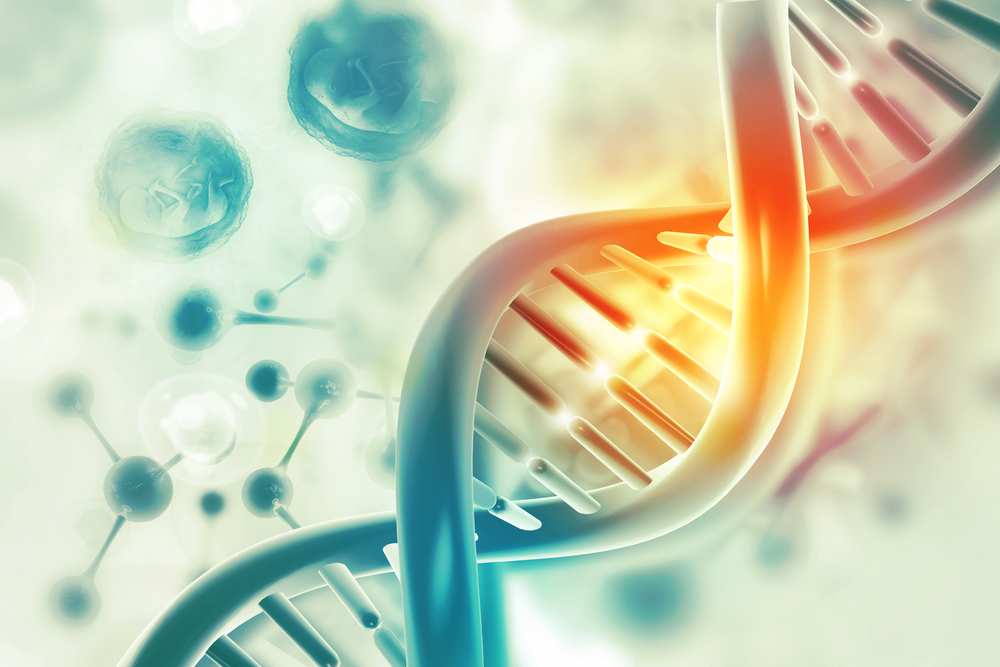Did you know that NAD+ plays a critical role in DNA repair? You’ll discover the biochemical process behind this, delve into how NAD+ aids cellular protection, and explore its relationship with aging. You’ll also see the future of NAD+ in therapeutic interventions. Get ready to immerse yourself in cutting-edge research and deepen your understanding of this crucial molecule’s impact on our health.
Understanding the Vital Role of NAD
You’ve got to understand the vital role of NAD+ in DNA repair and protection; it’s more important than you might think. In particular, NAD+ synthesis is crucial for maintaining cellular health. According to a study by Fang et al., 2017, this process promotes the activity of enzymes involved in DNA repair.
Now, let’s talk about what happens when there’s an NAD+ deficiency. It isn’t pretty – cells become vulnerable to damage due to the lack of necessary enzymes for proper DNA repair. You see, NAD+ activates these proteins named PARPs (Poly ADP-ribose polymerases), which detect and signal DNA damage for repair. And without enough NAD+, PARPs can’t do their job effectively.
Furthermore, research from Zhang et al., 2016 indicated that prolonged NAD+ deficiency could lead to genomic instability and accelerated aging. This revelation underscores the need for maintaining adequate levels of this vital coenzyme.
The Biochemical Process of DNA Repair

In your body’s cells, there’s an intricate biochemical process that fixes damaged genetic material to maintain overall health. This is known as DNA repair, and it’s a critical part of maintaining cellular function.
DNA damage sources are varied, ranging from environmental factors like UV radiation to internal threats such as reactive oxygen species. Regardless of the source, your cells have evolved numerous repair mechanisms to address this damage.
Let’s get an overview of these repair mechanisms: First, there’s direct reversal – simple, quick-fix solutions for minor alterations. Then you’ve got base excision repair (BER), which handles small, non-helix-distorting base lesions in the DNA structure.
Nucleotide Excision Repair (NER) is up next – it mends bulky helix-distorting lesions caused by intrastrand crosslinks or exposure to certain carcinogens. MisMatch Repair (MMR) corrects replication errors including mispaired bases and insertion or deletion loops.
Lastly, we have double-strand break repairs via Homologous Recombination (HR) and Non-Homologous End Joining (NHEJ). These are complex processes dealing with severe damages that can possibly lead to chromosomal rearrangements if left unaddressed.
According to research published in ‘Cell Reports’, NAD+ plays a crucial role in facilitating these repair processes – but that’s a topic for another day!
NAD+ and Its Impact on Cellular Protection
It’s fascinating how NAD+ boosts our cells’ defenses, strengthening them against various forms of damage. Your body uses this coenzyme to protect your DNA from environmental stressors like radiation and aging, thus enhancing cellular resilience.
NAD+ supplementation might be the key to achieving this increased resistance. Research has shown that replenishing NAD+ levels can have numerous health benefits:
– It enhances DNA repair mechanisms.
– It promotes cellular longevity.
– It improves metabolic efficiency.
– It reduces inflammation.
These functions are essential for maintaining optimal health and slowing down the aging process. Without sufficient NAD+, your cells’ ability to repair themselves diminishes greatly, leaving them vulnerable to disease and decay.
In a study conducted by Harvard Medical School, it was discovered that boosting NAD+ levels can rejuvenate cells and reverse signs of aging in mice – a promising find for humans too! So don’t underestimate the power of this tiny molecule; it could be your ticket to healthier, more resilient cells.
Remember though, while supplementing with NAD+ can help maintain cellular resilience, it’s not a substitute for a healthy lifestyle. You should still focus on regular exercise, balanced diet and adequate sleep for overall wellness.
The Relationship Between NAD+ and Aging
Aging’s effect on your body can’t be denied, but did you know that there’s a strong link between this natural process and a tiny coenzyme that influences cellular resilience? This coenzyme is called Nicotinamide Adenine Dinucleotide (NAD+), which plays an essential role in DNA repair and protection, contributing to the anti-aging elements of cells.
Research has shown that NAD+ levels decline with age, leading to increased susceptibility to age-related diseases. But don’t worry. There’s good news too! Various studies have indicated that NAD+ supplementation may help slow down the aging process by enhancing cellular repair mechanisms.
In 2013, Harvard Medical School conducted a study demonstrating how NAD+ can reverse aspects of aging in mice. The experiment focused on treating older mice with NMN (a precursor to NAD+) and noted significant improvements in their health and longevity.
So, it seems like boosting your body’s NAD+ levels could potentially decelerate the onset of aging signs. It won’t stop you from getting older – nothing can do that – but it might help you age more gracefully by maintaining cellular health.
Remember: this information should guide discussions with your healthcare provider about potential benefits of NAD+ supplementation for anti-aging purposes.

The Potential for NAD+ in Future Therapeutic Interventions
There’s exciting potential for using NAD+ in future therapeutic interventions, particularly related to age-related diseases. As you dive deeper into the research, you’ll find that NAD+ supplementation benefits are incredibly promising.
– Studies show that boosting NAD+ levels can help delay aging and protect against neurodegenerative diseases.
– Evidence suggests a role for NAD+ in DNA repair mechanisms, which may help prevent mutations that lead to cancer.
– Research indicates that increasing NAD+ could improve metabolic health by enhancing mitochondrial function.
– There’s considerable interest in using NAD+ to combat chronic inflammation, a key contributor to many age-related conditions.
When it comes to the role of NAD+ in neurodegeneration, various studies have found its levels decrease as neurodegenerative diseases progress. Therefore, replenishing these levels might slow disease progression or even promote neurological health.
However, while these findings are encouraging, detailed investigations need to be carried out before we can fully harness the therapeutic power of this vital molecule. It’s clear though – from a scientific perspective – your understanding and appreciation of NAD+’s potential is just beginning!
Frequently Asked Questions
How Does Nad+ Deficiency Impact Overall Health and Wellness?
NAD+ deficiency can severely impact your health and wellness as it leads to symptoms like fatigue, insomnia, and cognitive decline. It’s also linked with accelerated aging. Research confirms NAD+’s critical role in supporting cellular health.
Are There Any Specific Dietary Sources That Can Increase Nad+ Levels in the Body?
You’re on the right track. Foods rich in niacin, like chicken or tuna, can boost your NAD+ levels. Research shows that higher NAD+ can slow aging and enhance exercise performance. So, eat well for your DNA’s sake!
What Are the Potential Side Effects Related to the Overconsumption of Nad+ Supplements?
You’re asking about NAD+ overdose symptoms and supplement regulation. Overconsumption can lead to nausea, fatigue, headaches, diarrhea. It’s important to follow recommended doses as there isn’t stringent regulation on NAD+ supplements yet.
How Does the Lack of Nad+ Affect Other Biochemical Processes, Apart From DNA Repair?
Without enough NAD+, you’re walking on thin ice. It’s key in aging and cellular energy production. Lack of it disrupts metabolic functions, leading to fatigue and aging-related diseases. Thus, maintaining NAD+ levels is essential.
Are There Any Ongoing Research Studies or Clinical Trials Exploring the Benefits of Nad+ in Other Health Conditions?
Yes, there are ongoing studies exploring NAD+ in aging and neurodegenerative disorders. They’re probing how NAD+ supplementation can combat age-related decline and protect against conditions like Alzheimer’s and Parkinson’s disease.